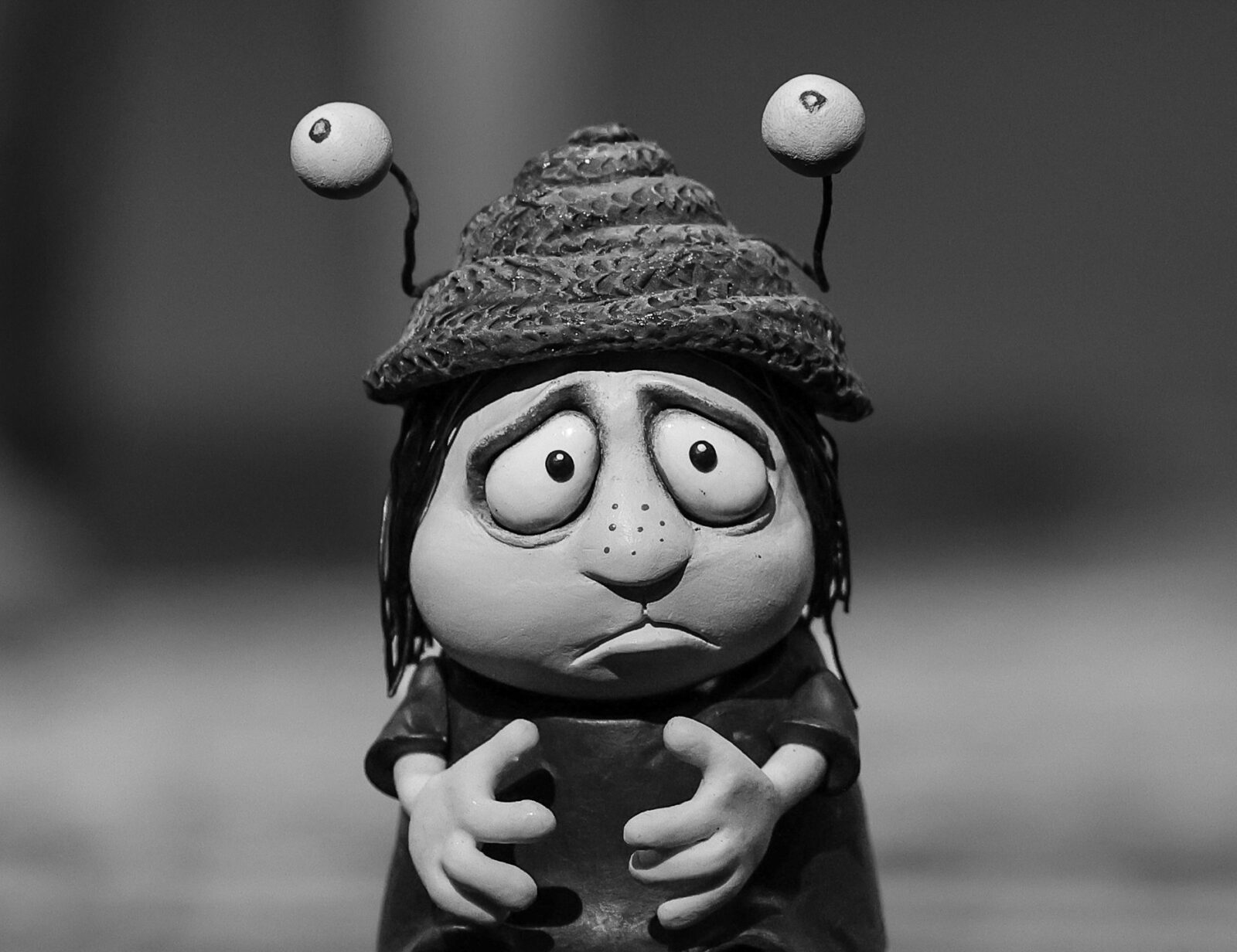Movie Review: Denver Film Festival Round Up Days 1-4

Julie River is a Denver transplant originally from Warwick, Rhode…
The 47th Denver Film Festival is once again happening in your own backyard, with some of the greatest films in the world playing at this massive festival. It kicked off on Friday, November 1 so, for the second year in a row, we sent our correspondent Julie River to watch as many movies as she could and report back on them. Last year’s festival produced some really great films that went on to see wide distribution and acclaim, including American Fiction, Late Night with the Devil, and The People’s Joker, so who knows what the big breakout film from this year’s festival is going to be. So check out the reviews below to see what you’re missing out on, and get the scoop on some films before they become the next big thing.
Memoir of a Snail
I couldn’t manage to finagle a ticket to the opening night film because it was too popular, so my opening night film was essentially Memoir of a Snail. In this charming Australian Claymation film, Grace Pudel (Sarah Snook) is a lonely woman who just lost her best friend, an older woman named Pinky (Jacki Weaver) and, in her grief, she narrates the story of her life to one of her pet snails and tells the story of all the losses in her life, the hardest being the loss of her twin brother Gilbert (Kodi Smit-McPhee) but, somewhere, in the midst of all her trauma, she finds a reason to live again.
This film, created by Adam Elliot who’s most famous for Mary and Max, was an absolutely lovely intro to the festival. Snook does a remarkable job of making Grace into a wonderfully likable character, and the tapestry that is sad life is rather fascinating. It’s a story about finding reasons to open your heart again after being hurt many times, and, by the end, you really root for Grace to find her happiness.
93/100
The Kingdom/La Royaume
In this French crime film set in 1995, Lesia (Ghjuvanna Benedetti) is a 15-year-old girl living in Corsica, the daughter of Corsican crime boss Pierre-Paul (Saverieu Santucci). She lives her life largely separate from her father’s activities, until one day she’s taken to his secret compound to keep him company as he confronts his crime organization’s latest crisis. But while Lesia and her father begin to bond and rediscover their father-daughter relationship, Lesia is, all the while, being sucked into her father’s dangerous world.
The delicate balance to find in films like this is making likable characters out of very bad people, which director and co-writer Julien Colonna pulls off deftly. What’s remarkable is that the film was cast without any professional actors, drawing from first-time local actors in Corsica. These amateur actors pull off shockingly brilliant performances, with the relationship between Lesia and Pierre-Paul feeling really tender and beautiful beneath a backdrop of crime and murder.
89/100
Dragon Dilatation
In the latest film by French film director Bertrand Mandico, the film is divided into two parts. The first half is a bizarre adaptation of Stravinsky’s ballet Petrouchka. The second half is an even more bizarre adaptation of La Déviante Comédie. The two combine into one trippy experience of these two classic stories, oddly presented in a split screen, with each side of the screen showing slightly different takes of the same scene.
I went to film school, and I spent a year dating someone with an impressive collection of obscure and experimental films, so I have seen some very, very weird films in my life. I tell you that so you can fully understand what it means when I say that this is in the top five weirdest films I’ve ever seen. The narrative was difficult to follow, instead being presented as more of a collection of viscerally striking images. Where exactly the point of this film lies escapes me, but it was a fascinating experiment in unconventional storytelling.
79/100
Sex
In this Norwegian film, two men, co-workers as chimney sweeps and friends as well, are both in heterosexual marriages when they find their lives disrupted by desires they never knew they had. One of the men (Jan Gunnar Røise) finds himself having a sexual encounter with another man; the other (Thorbjørn Harr), finds himself having dreams where he is perceived as a woman. Through a series of long conversations with each other and their spouses, the two men find their ways to come to terms with these new parts of themselves.
Despite the film’s salacious title—which made it really funny as Denver Film volunteers shouted down the hallway of the movie theater “Are you here for Sex?”—it’s not a very visually sexual film. Most of this movie is a series of long, drawn-out conversations. That may not sound that interesting, but it was really interesting to get these deep-dive conversations about the nature of sexuality and gender. The only strange thing was that these conversations were punctuated by these weird scenic shots of Norway’s urban skyline which, frankly, isn’t that pretty to look at. All the buildings look very basic and strictly functional and don’t really have much of a sense of beauty to justify lingering on them so long with the camera. But the character development through these conversations and the frank discussions about societal expectations made for a really compelling film.
87/100
Pet Shop Days
This film, which is technically called a British film but takes place in Mexico in New York, starts with Alejandro, a young man in his 20s who seems to be having a sexual affair with his own mother. (Trust me, I kept waiting for something in the dialogue that indicated that she was his step-mother or something, but not a single line of dialogue confirms that.) After making a scene at his father’s birthday party and accidentally running over his mother, he flees to New York where he meets a young pet store employee named Jack (Jack Irv), and Alejandro draws Jack into his world of drugs, rampant sex with women and each other, and crime in the seediest parts of New York.
I, frankly, felt like this movie was well below the standards that the Denver Film Festival usually sets for itself. What’s stranger is that they would choose to screen this film despite the fact that the handful of reviews that have come out about it so far seem to agree it’s just a muddled mess. Nothing about Alejandro is remotely redeemable, and his queerness is almost seen as sinister in the way that he’s drawing Jack into his dark world. While I appreciate that DFF tries to get a lot of queer films at their festivals, this one felt like one of the more detrimental depictions of bisexuality I’ve ever seen and not necessarily something that felt empowering. Even with performances by renowned actors Peter Sarsgaard and Willem Dafoe, there’s not much to like about this film.
43/100
Swamp Dogg Gets His Pool Painted
As legendary R&B, country, and soul musician, songwriter, and record producer Jerry Williams Jr., aka Swamp Dogg, gets the pool painted at his home in California that he shares with a number of his fellow musicians, an interviewer slowly draws out the story of Williams’ remarkable life. After a brief career releasing singles in the ‘50s and ‘60s as Little Jerry Williams, the singer transformed himself into Swamp Dogg and put out a slew of albums both of his own music and producing music for others. The colorful characters in his life become an integral part of the story, as famous actors like Tom Kenny and Johnny Knoxville stop by to talk to Swamp Dogg more about his life story.
I first became aware of Swamp Dogg due to a mention of his 2018 album Love, Loss, and Auto-Tune on the short-lived Hulu TV series version of High Fidelity, and ever since then, I’ve maintained a passing interest in him. So learning more about his life was really fascinating because he’s lived quite a colorful life. What makes this film so charming is Swamp Dogg’s no-nonsense way of talking which makes for a lot of really funny exchanges in the interview, making his life story even that much more enjoyable.
91/100
Secret Mall Apartment
In 2003 in Providence, Rhode Island, a Rhode Island School of Design instructor named Michael Townsend, as well as his wife and some friends and students, embark on the bizarre project of building a secret apartment in an unused part of the Providence Place Mall, partially for living there but more often to use as the headquarters for their guerrilla art projects. Through an explanation of the history of urban expansion and gentrification in Providence, the film posits the apartment as an act of resistance—perhaps even an art piece—in protest of the city’s urban renaissance of which this mall was the centerpiece.
This movie was really special to me because I grew up in Rhode Island, and I spent a lot of time in 2003 hanging out in the Providence Place Mall, so I knew the setting very well. Yet, somehow, the film managed to teach me a lot of things I didn’t know about my home and really made a case for the Providence Place Mall being the greatest blight on the Providence landscape. Additionally, Michael Townsend is depicted as a fascinating artistic mind and a really likable person, which is part of what makes this film feel like something special and not just a film about squatters. While I can’t say I knew any of the people involved with the mall project, there’s a brief segment at the end of the film where they interview local art experts to ask their opinion on whether or not the apartment constituted a work of art, and in that segment I was shocked to see a dear, old high school friend of mine being interviewed. But honestly, even if you’re not from my home state, this is a fascinating film about a unique individual and a scathing indictment of urban sprawl.
95/100
Dead Mail
In the 1980s, an amateur synthesizer manufacturer named Josh (Sterling Macer Jr.) is kidnapped and held hostage by his business partner Trent (John Fleck) in Trent’s bathroom. After Josh manages one day to crawl his way to the mailbox and drop an incomplete note asking for help in the mail, the letter ends up in the dead mail department of the local post office where the post office staff, with little assistance from uncooperative police, need to piece together the mystery of the bloody letter.
Someone next to me said they weren’t aware they had gotten a ticket for a horror movie and were worried about how scary it would be, but it’s less of a horror film and more of a crime thriller, and a really good one at that. John Fleck plays a truly haunting sociopath, giving us a villain that you’ll absolutely love to hate. But what’s most compelling about this film are all the twists and turns in a film that really never feels predictable. The way the film is laid out, starting in the middle and then rewinding to the beginning, is a unique way to tell the story and does a great job of getting us hooked early with the most exciting part of the story.
One thing that really amused me about this film is that at the end, there’s one of those “where are they now” segments where they tell you what happened to all the characters in real life after the events of the film, even going so far as to show what all the characters looked like in real life. Except, after the film was over, I went to go look up the history of the real crime and found that the ending of the film was a complete fake out, and Dead Mail is not based on a true story in any way. That made for a really amusing end to an already exhilarating film that’s bound to take off as it continues to play festivals.
94/100
Even though the Denver Film Festival has already started, some limited tickets and passes are still available to the festival if you want to see what you’re missing out on.
Photo courtesy of Instagram
What's Your Reaction?
Julie River is a Denver transplant originally from Warwick, Rhode Island. She's an out and proud transgender lesbian. She's a freelance writer, copy editor, and associate editor for OUT FRONT. She's a long-time slam poet who has been on 10 different slam poetry slam teams, including three times as a member of the Denver Mercury Cafe slam team.










